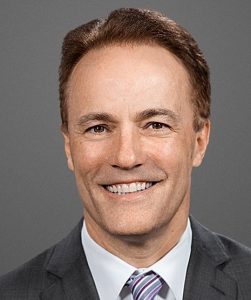
The Commodities Futures Trading Commission (CFTC) announced an increase in enforcement actions.
“During the last Fiscal Year, the CFTC filed 83 enforcement actions. That’s among the highest number of actions in the Commission’s history, and an approximately 25% increase from each of the last three years of the prior administration. A 25% increase.”Said Christopher Giancarlo, CFTC Chair.
Giancarlo made the comments during a speech he made last week at the Economic Club of Minnesota in Minneapolis, Minnesota.
The speech was entitled;“Regulatory Enforcement & Healthy Markets: Perfect Together!”
Giancarlo said the good news did not stop there with more enforcement action leading to more penalties: “Not surprisingly, the penalties resulting from those cases also reflect our commitment to combating wrongdoing in our markets. The total amount of civil monetary penalties imposed by the Agency during the last Fiscal Year was approximately $900 million. That total is higher than five of the eight years from 2009 to 2016. And of those $900 million, we collected about $800 million—or just under 90 percent. That would have ranked second highest during that same eight year period from 2009 to 2016. The second highest.”
And, he claimed that the CFTC was not merely nailing nickel and dime scams but going after more big players: “This year’s enforcement effort reflects the broadest range of significant actions in the history of the Commission. During the last Fiscal Year, we brought more large-scale matters, against those whose actions threaten the basic integrity of the market, than in any previous year in Commission history. From 2009 to 2016, the CFTC imposed monetary judgments of more than $10 million in an average of three cases per year. This past year, we imposed such monetary judgments in ten cases. That’s more than three times the previous average.”
Despite his optimism, The CFTC has previously been criticized for not being able to do many large scale investigations.
A 2017 story from Forbes noted:“Big fraud allegations often mean big settlements will follow. But the settlements the Commodity Futures Trading Commission reached with former MF Global CEO Jon Corzine in early January and Igor Oystacher and his Chicago firm, 3Red Trading LLC, in December were surprisingly puny.
“Now the reason why they were relatively small – $5 million and $2.5 million, respectively – has been revealed: The CFTC doesn’t have the funds to investigate and litigate many major cases any more.”
Giancarlo also said that more whistleblowers have been helped: “On top of all this, we’ve developed our whistleblower program in unprecedented ways. We strengthened the protections we provide to whistleblowers that come forward. We granted more whistleblower awards this past Fiscal Year than in the entire history of the program. And we issued the largest whistleblower awards in the history of the Agency. All of this has been designed to ensure more whistleblowers come forward to tell the Agency about any misconduct occurring in our markets. It seems to be working, as we’ve received more whistleblower tips and complaints this past year than in any previous year.”

This is an echo of a thought recently made by the head of the CFTC Whistleblower office, Chris Ehrman when Ehrman appeared with Andrew Busch, CFTC’s head of Market Intelligence, on Busch’s podcast.
But as The Industry Spread has shown this does not apply to at least one whistleblower, Edwin Johnson, who was not only denied a whistleblower award but has faced repeated retaliation, even as the CFTC looks the other way.
Johnson blew the whistle on major spoofing at his employer 3 Red Trading; his disclosure led to a $2.5 million fine, none of which he received and a judge in a separate civil suit forced him to reveal his contacts with law enforcement including the CFTC; the CFTC did not step in when the judge forced him to do this.








